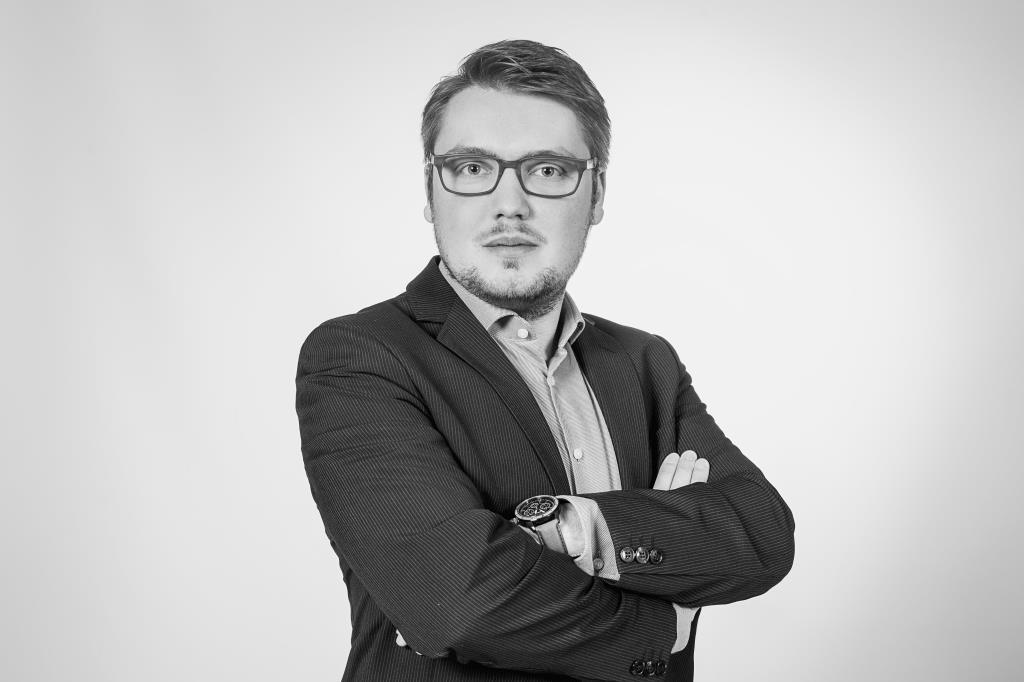
Maximilian Brol
Maximilian Brol - PhD student at Translational Hepatology at Goethe University Clinic Frankfurt
My current research focus is animal models - investigating the gut-liver-axis. I try to find the best suitable model in rodents for alcoholic liver disease. We try different regimes and different diets combined with ethanol and then we correlate our findings with the findings in the clinical trials of the GALAXY project.
We know that some diets induce liver injuries in mice. There are two main challenges with animal models: It takes a very long time until the liver damage is established and it is therefore very costly and time consuming. Furthermore, the results in rodents cannot be translated one-to-one to humans. Therefore, we check the same targets in our human cohorts to get models that are more applicable for pharmaceutical research, pathological research etc.
”Alcohol overuse is often neglected, by the young as well as by the politicians, and that is why the number of patients is increasing
What is the relevance of your research?
Epidemiological data point out very clearly that alcoholic liver disease is an increasing issue in the Western world and especially in Europe. Alcohol overuse is often neglected, by the young as well as by the politicians, and that is why the number of patients is increasing. To my knowledge, no treatments are available for alcoholic liver disease either in the early stage of the disease or in later stages. We can only try to monitor the patients and try to avoid complications. We cannot offer any real treatment, so that is why work in this field is very important.
What inspired you to pursue a career in science?
I think all German medical students, at least once, think about writing an MD thesis. Initially, I wanted to be a virologist and worked in the lab of Christian Drosten, who has now become the German expert on COVID19, but the lab moved to Charité in Berlin and, luckily, I ended up with a position in hepatology. Now I cannot imagine working in any other field.
As a clinician, you collect data from your patients for diagnostic purposes and I think it would be a great pity not to use this information for research purposes as well. I enjoy the academic environment and making new plans for projects. Research does not exhaust me, research is like a hobby. So that is how it started, research was an addition to my academic formation.
What inspires you as a researcher?
It is a difficult question, but I think that having an impact on society is an important aspect, as sometimes research can change society. For example, at the beginning of the HIV outbreak, people really feared the infection, and now, 10 years later, we can offer some kind of treatment and people do not pay much attention to the disease anymore. Science has a major impact on society and societal behavior. It is a privilege and very satisfying to work in this field.
Sometimes one loses one’s relation to the impact research has, for example when discussing specific results in the GALAXY project, but in a long-term perspective research is very important. It can change the everyday life of the clinicians. If one of our results will lead to an approved pharmaceutical drug, it may be the only treatment available and every liver disease patient will get it. We should always keep the aims in mind, because they are important for the motivation. For example when I spent New Year’s Eve caring for the animals in the lab.
”in the end it is all about the patients
What is a ‘day in the life’ of Max?
In the periods during my practical training as a Medical Doctor, I usually get up at 6.30. Right now, I am in surgical training, and from 8 am to 1 pm, I am present at operations. After lunch, I have some small tasks to perform on the ward as well as some lessons. Usually three afternoons a week, I do some analyses or work on clinical studies. We have collected most data so we need to analyze them and work on the manuscript and the publications. In my free time, I go to the cinema with my friends or do sports - to be honest, I should do some more sports, and I have already bought a gym card…
In the periods I collected data at our animal facilities, seven days a week, my days were concentrated on the animals, since they had a 12-hour day-and-night cycle, and it is always important to change diets when they are awake.
What are you seeking to accomplish in your career?
If I could choose my job freely, I would like to have a combined job. On the one hand, I would like to be a clinician, as this is my background and I really enjoy working with patients. On the other hand, I still enjoy the academic environment. I enjoy working in a university hospital where you have very good teams, well prepared for clinical studies. It would be a pity not to use this environment. When I was on hepatological training in Switzerland and took care of patients there, many clinical and scientific questions arose and for me it is a privilege to try to answer some of these questions. If I became a GP, I would not have a chance to investigate this, but in an academic environment, I have the possibilities and a perfect framework, which I would like to use. Summing up, in the end it is all about the patients.